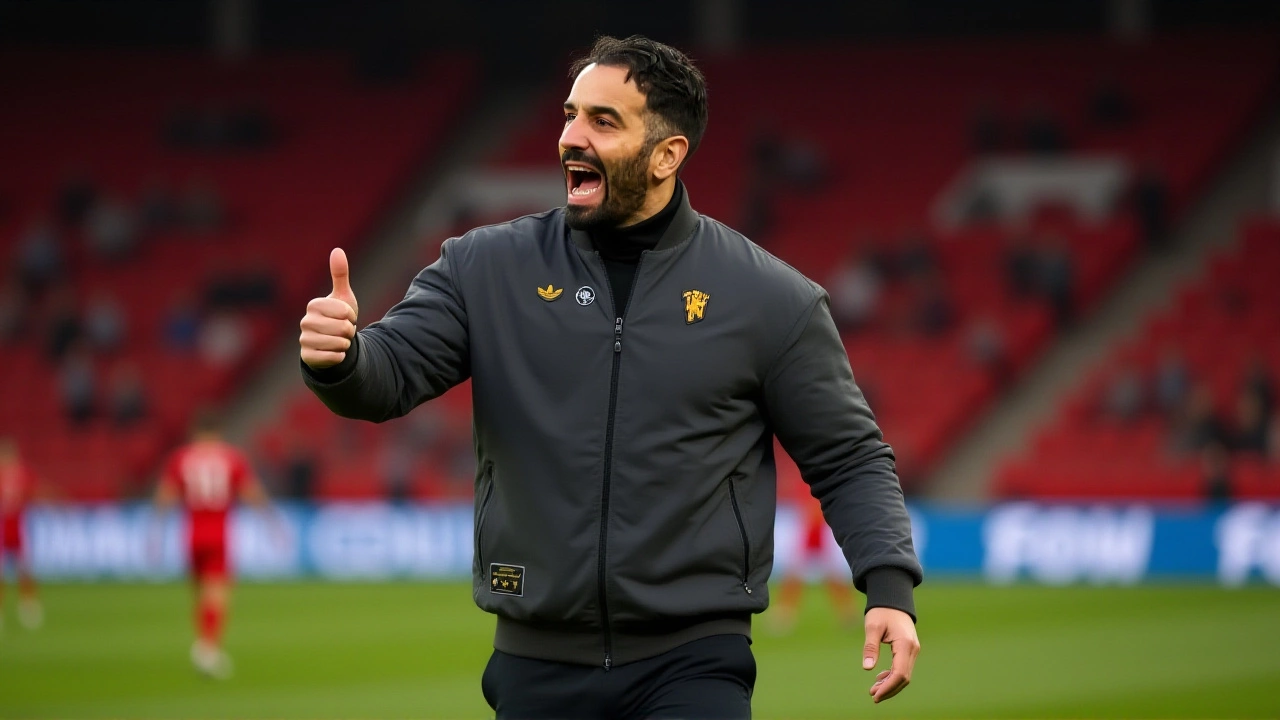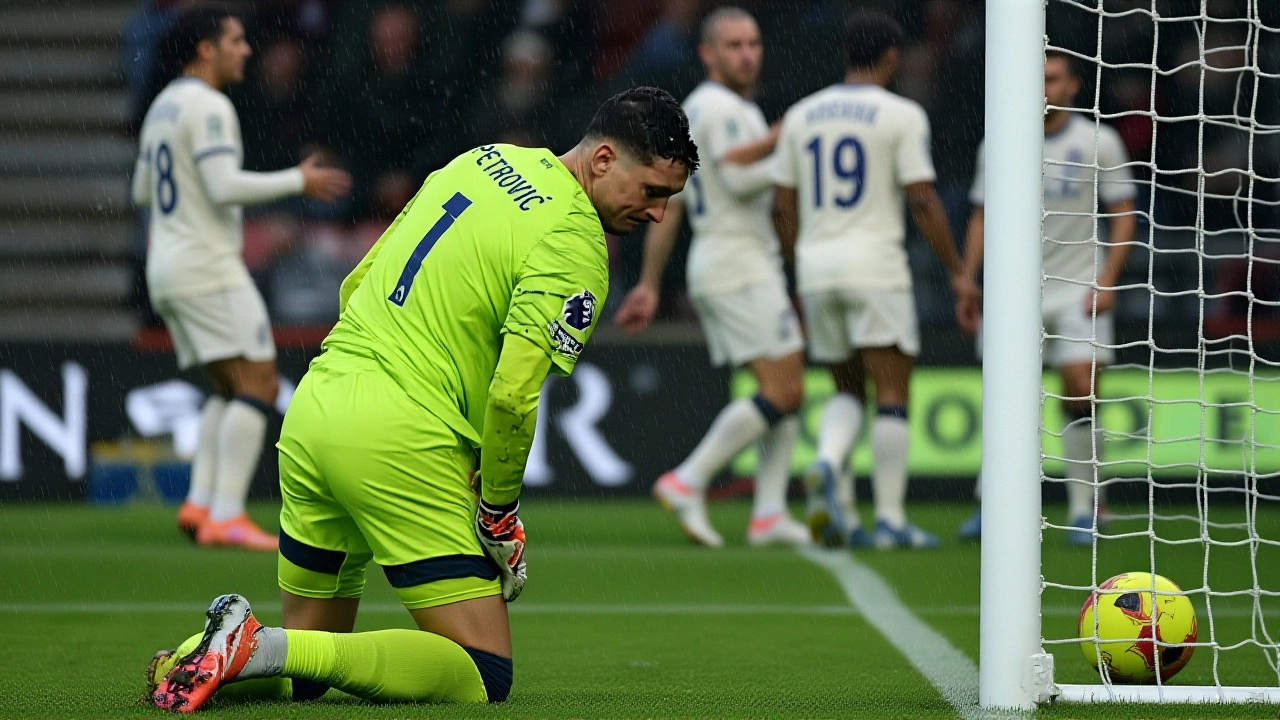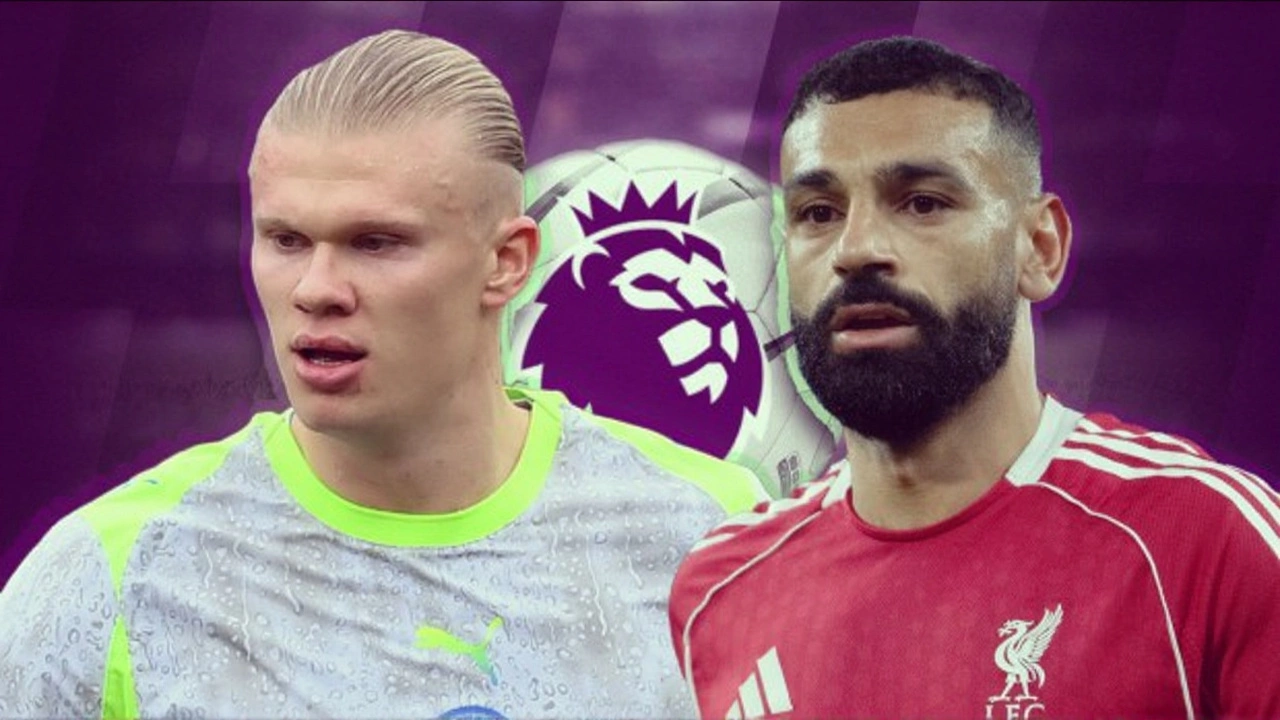It wasn’t just a loss. It was a reckoning. Liverpool FC crumbled under the weight of their own expectations, losing 3-0 to Nottingham Forest at Anfield Stadium on Saturday, November 22, 2025 — a result that sent shockwaves through English football. The reigning Premier League champions, who lifted the trophy just seven months ago, now sit in 14th place after 12 matches, with only 12 points and a goal difference of -9. Meanwhile, the team they once dismissed as relegation fodder — Nottingham Forest — celebrated a historic second consecutive win at Anfield, climbing to 12th with 12 points of their own. The final whistle, blown at 90'+5, didn’t just end a match. It exposed a club in freefall.
How It Unfolded: A Masterclass in Counterattacking Precision
The game began with Liverpool pressing high, as expected. But Nottingham Forest, under the calm guidance of manager Steve Cooper, had other plans. At the 33rd minute, Morgan Gibbs-White — who’d scored the only goal in last year’s 1-0 Forest win at Anfield — struck again. A swift pass from Elliot Anderson found him in space, and his low, curling finish past Alisson Becker sent the home crowd into stunned silence. The goal was the first time Liverpool had conceded in the first half this season at home.Then came the second half — and the collapse accelerated. Barely 40 seconds in, Neco Williams (often misidentified as "Savona" in early broadcasts) cut inside from the left, danced past two defenders, and fired a left-footed shot into the top corner. The goal was the fastest ever scored by Forest in a second half at Anfield. The Anfield faithful, who’d spent the last 18 months singing "You’ll Never Walk Alone," now whispered prayers for their team’s survival.
At the 68th minute, Amari Hutchinson sealed it. A free kick from Gibbs-White was cleared poorly, and Hutchinson, a 21-year-old academy product, pounced on the loose ball, turned sharply, and slotted it past Alisson. It was his third goal in four league appearances — and Forest’s first clean sheet at Anfield since 2017.
The Defensive Breakdown: When Champions Forget How to Defend
Liverpool’s defense looked like a house of cards in a hurricane. Nikola Milenković — Forest’s towering center-back — didn’t just stop Mohamed Salah; he made him look like a man chasing ghosts. Salah had just one shot on target — a weak effort saved by Wayne Hennessey — and was subbed off at 78 minutes, head down, arms crossed. The midfield, once the engine of Klopp’s machine, looked disjointed. Federico Chiesa, signed in the summer for £32 million, was a shadow of his former self, his final blocked shot in stoppage time a symbol of Liverpool’s frustration.Alisson, normally a rock, made six saves — including a stunning stop on a long-range effort from Joshua Zirkzee — but it was a performance of damage control, not dominance. The backline, missing Virgil van Dijk due to injury, had no leader. Trent Alexander-Arnold, usually a creative force, was marked out of the game. And the midfield trio of Mac Allister, Szoboszlai, and Jones — once praised for their chemistry — looked lost.

Cooper’s Masterstroke: The Rise of Nottingham Forest
This wasn’t luck. It was strategy. Steve Cooper, who once managed Wales’ U21 side and was nearly fired by Forest in 2023, has turned them into the league’s most dangerous counterattacking team. They sat deep, absorbed pressure, and struck with surgical precision. Their 3-0 win was their first ever at Anfield since 1995 — and now, they’ve done it twice in a row. "They didn’t just beat us," said one veteran Anfield steward after the match. "They made us feel small. And that’s scarier than any loss."Forest’s rise is no fluke. They’ve now won three of their last five games, and their goal difference has improved from -11 to -7 in just three matches. Their next fixture? A home game against West Ham United — a team they’re now level with on points. For the first time in a decade, Forest fans are talking about European qualification, not survival.
The Fallout: A Club in Crisis
Liverpool’s slide is now undeniable. After winning the Premier League in 2024-25 with 97 points, they’re on pace for 56 — a 41-point drop. Their last win? A 2-1 victory over Leeds United on October 19. Since then? Three losses, two draws. Their attack, once the most feared in Europe, has scored just four goals in their last five home games. The pressure on manager Arne Slot is now deafening. Social media is flooded with #SlotOut hashtags. Fans are demanding answers. And the board? Silent.The timing couldn’t be worse. With the Champions League knockout stage looming and the FA Cup just weeks away, Liverpool’s focus is fractured. Their next match — against Manchester City on December 1 — will be a test of character. Or a coronation of their decline.

What’s Next? The Road Ahead
For Nottingham Forest, the momentum is real. They’ve beaten the champions twice in a row. They’ve silenced Anfield. Now, they must prove they can do it on the road. Their next three fixtures — against West Ham, Aston Villa, and Chelsea — will determine whether this is a flash in the pan… or the start of something bigger.For Liverpool? It’s about survival — not just in the league, but in the hearts of their supporters. They’ve lost their identity. Their rhythm. Their belief. And unless they find it soon, the 2025-26 season won’t just be remembered as a disappointment. It’ll be remembered as the year the dynasty died.
Frequently Asked Questions
How did Nottingham Forest manage to beat Liverpool so convincingly at Anfield?
Nottingham Forest executed a disciplined counterattacking game plan under Steve Cooper, sitting deep and exploiting Liverpool’s high defensive line. They scored three goals in just 35 minutes — two in the first half and one early in the second — while limiting Liverpool to only one shot on target. Their midfield, led by Elliot Anderson and Morgan Gibbs-White, controlled transitions, while Neco Williams and Amari Hutchinson capitalized on defensive errors. It was tactical, not accidental.
Why is this defeat so damaging for Liverpool’s season?
Liverpool, the defending champions, are now 14th in the Premier League with just 12 points from 12 games — a 41-point drop from last season’s 97. They’ve failed to win at home since October, lost key players to injury, and their attacking rhythm has vanished. With Manchester City, Arsenal, and Chelsea pulling away, a top-four finish now looks unlikely. This loss isn’t just a setback — it’s a sign their entire structure is unraveling.
Is Steve Cooper the reason for Nottingham Forest’s resurgence?
Absolutely. After nearly being sacked in 2023, Cooper rebuilt Forest’s identity around defensive organization and quick transitions. This season, they’ve conceded the fewest goals among mid-table teams and are scoring more from set pieces. Gibbs-White’s form (three goals in four games) and Hutchinson’s emergence have turned them into a threat. Cooper has instilled belief — and now, Forest fans are dreaming of European football for the first time since 1999.
What does this result mean for Liverpool’s manager, Arne Slot?
Slot’s future is now in serious doubt. His high-pressing system, which worked in the Eredivisie, has failed to translate to the Premier League. Liverpool’s midfield lacks balance, their fullbacks are exposed, and their attack looks predictable. With fans calling for his removal and the board facing pressure to act before the January transfer window, Slot may not survive the next three matches — especially with Manchester City and Chelsea looming.
Has any other reigning champion suffered such a rapid decline?
Yes. Manchester United collapsed from 2013 title winners to 7th in 2014, and Chelsea fell from 2017 champions to 10th in 2018. But Liverpool’s drop — from 97 points to 12 in 12 games — is unprecedented in the Premier League era. No defending champion has ever lost three consecutive home games while scoring just one goal. This isn’t just a bad season — it’s a historic implosion.
What’s the significance of Forest winning at Anfield twice in a row?
It’s historic. Nottingham Forest hadn’t won at Anfield since 1995 — a 30-year drought. To win twice in a row, especially against the reigning champions, is a seismic shift. It’s the first time since 1980 that Forest have beaten Liverpool in consecutive seasons. For a club that spent years in the Championship, it’s a symbol of resurgence — and a psychological blow to Liverpool’s aura of invincibility at home.
